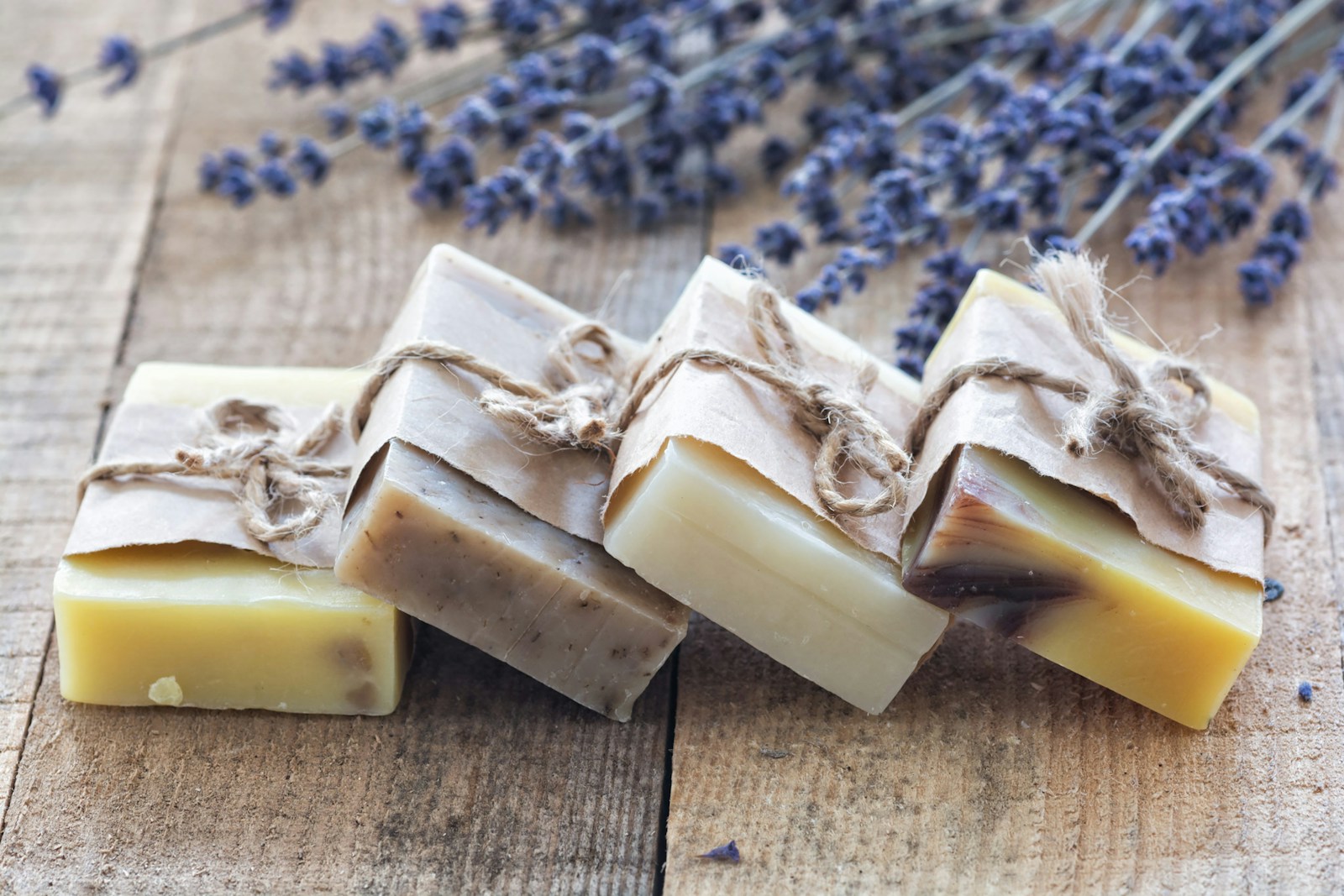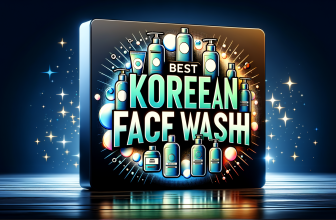
Concerned about bacteria and the ever-growing need to maintain hygiene in your daily life? You’re not alone. In a world where health and cleanliness are more critical than ever, antibacterial soap has become a staple in many households. But with the market overflowing with options, how do you choose the best antibacterial soap for your needs? Let’s dive into our comprehensive guide and review to help you make an informed decision.
Our Top Picks
Our #1 Top Pick: Dial Gold Antibacterial Deodorant Soap
Dial Gold has long been a household name when it comes to antibacterial soaps. This classic bar soap provides a broad spectrum of antibacterial protection that’s hard to beat. Its non-drying formula means that it cleanses the skin without stripping away moisture, making it suitable for daily use. The refreshing scent leaves you feeling clean and rejuvenated throughout the day. Moreover, it’s incredibly effective against common bacteria, which makes it a top choice for families looking to keep germs at bay.
Pick #2: Cetaphil Antibacterial Gentle Cleansing Bar
Cetaphil has always been synonymous with gentle skincare, and their Antibacterial Gentle Cleansing Bar is no exception. Formulated for sensitive skin, it’s mild enough for all skin types while still providing effective antibacterial action. The non-soap formula helps maintain the skin’s natural pH balance and is non-comedogenic, so it won’t clog pores. A great option for those with skin conditions or who prefer a gentle, fragrance-free soap.
Pick #3: Hibiclens Antimicrobial/Antiseptic Skin Cleanser
Hibiclens is a trusted choice among healthcare professionals and is known for its clinical strength. It’s powerful enough to be used in hospitals yet safe enough for household use. The active ingredient, Chlorhexidine Gluconate, ensures a high level of antimicrobial effectiveness which can continue killing bacteria for up to 24 hours after washing. It’s also gentle on the skin and can be used as a hand wash or a full body cleanse.
Pick #4: Defense Soap Original Tea Tree Bar
Specially formulated for athletes and gym enthusiasts, Defense Soap contains natural tea tree and eucalyptus oils, both known for their natural antibacterial and antifungal properties. It’s designed to help combat sports-related skin infections and is free from harsh chemicals and artificial fragrances, making it an excellent option for individuals looking for a more natural approach to antibacterial cleansing. It’s also triple-milled, which means it lasts longer than your average bar soap.
Pick #5: Softsoap Antibacterial Liquid Hand Soap
If you prefer liquid soaps, Softsoap’s Antibacterial Liquid Hand Soap should be on your list. The creamy lather and refreshing scent make for a pleasant hand washing experience, while its antibacterial properties ensure your hands are left clean and germ-free. It’s dermatologist-tested and contains moisturizers that leave hands feeling soft and protected.
What to Know Before You Buy
- Effectiveness: It’s important to look for soaps with proven antibacterial ingredients that can reduce or eliminate bacteria effectively.
- Skin Type: Consider your skin type—whether it’s dry, oily, sensitive, or normal—and choose a product that will work harmoniously with your skin without causing irritation.
- Usage: Decide whether you require the soap for general household use or for specific health conditions that might require a more specialized antibacterial soap.
- Scent: While some may prefer scented soaps that leave a fresh smell, others might want fragrance-free options, especially those with sensitive skin or allergies.
- Ingredients: Check the ingredients list for potential allergens or harsh chemicals that could potentially harm your skin with long-term use.
Factors to Consider Before Buying
- Antibacterial Properties: Not all soaps labeled “antibacterial” are created equal. Ensure the active ingredients have been tested and proven for effectiveness against bacteria.
- Moisturizing Qualities: Frequent handwashing can lead to dry skin, so consider soaps with moisturizers like glycerin or aloe vera to maintain skin health.
- Form: Evaluate whether a liquid or bar form suits your lifestyle and preferences better.
- Value for Money: Price points and sizes vary, so consider how often you’ll be using the soap and in what quantity before making a purchase.
- Brand Reputation: Stick to reputable brands that are transparent about their ingredients and have good consumer feedback.
Why Trust ChooseRight?
When it comes to health and hygiene, there is no room for guesswork. At ChooseRight, we’ve meticulously reviewed countless antibacterial soaps, delved into over a thousand user reviews, and solicited feedback from skincare professionals to bring you an unbiased and well-researched list of the best products on the market. By putting in the groundwork, we ensure that our recommendations are trustworthy and tailored to meet your hygiene needs.
Finishing Thoughts
Choosing the best antibacterial soap comes down to understanding your individual hygiene requirements, skin type, and personal preferences. With the in-depth reviews and comprehensive buying guide provided, you’re now well-equipped to select a soap that promises cleanliness, protection, and peace of mind. Remember, maintaining proper hand hygiene is paramount, and with the right antibacterial soap, you’re taking a strong step forward in protecting yourself and those around you from germs and illnesses.
Frequently Asked Questions
What is antibacterial soap?
Antibacterial soap is a type of cleansing product formulated to kill or inhibit the growth of bacteria on the skin. It typically contains chemical agents or natural ingredients that have antimicrobial properties.
How does antibacterial soap differ from regular soap?
Unlike regular soap, which mainly works by physically removing germs and dirt from the skin, antibacterial soap contains active ingredients specifically designed to reduce or eliminate bacteria. Regular soap is effective for general cleaning, but antibacterial soap provides an added level of protection against germs.
Is antibacterial soap more effective than regular soap?
For everyday use, regular soap is generally effective at removing germs when used correctly. However, antibacterial soap may be more effective in environments where there is a higher risk of bacterial contamination or infection.
Can antibacterial soap prevent illness?
Using antibacterial soap can potentially reduce the risk of certain infections, especially in healthcare settings. However, for the general public, proper handwashing technique with regular soap and water is usually sufficient to prevent illness.
What are some common active ingredients in antibacterial soap?
Commonly used active ingredients in antibacterial soaps include triclosan, triclocarban, and benzalkonium chloride, among others. However, due to concerns over antibiotic resistance and environmental effects, some of these ingredients may be phased out or less commonly used.
Can using antibacterial soap lead to antibiotic resistance?
There is concern that overuse of antibacterial products, including soap, may contribute to antibiotic resistance. As a result, some experts recommend using these soaps judiciously and only in situations where they are clearly beneficial.
Is antibacterial soap safe for daily use?
Many antibacterial soaps are safe for daily use, but it’s important to read the label and follow usage instructions. Some individuals may experience dryness or irritation, especially with frequent use or if they have sensitive skin.
Can I use antibacterial soap on my face?
While some antibacterial soaps can be used on the face, it’s important to choose a product that’s formulated for the sensitive skin of the face. If you have a skin condition or sensitive skin, consult with a dermatologist before using antibacterial soap on your face.
Should children use antibacterial soap?
Children should generally avoid using antibacterial soap unless instructed by a healthcare provider. Regular soap and proper handwashing techniques are typically recommended to prevent the spread of germs among children.
How should I choose the best antibacterial soap for my needs?
To choose the best antibacterial soap for your needs, consider factors like the type of ingredients, your skin type, any skin conditions you may have, the specific purpose of the soap (e.g., handwashing vs. body washing), and recommendations from health professionals if you’re using it to manage a specific risk or condition.
Are there natural alternatives to antibacterial soap?
Yes, there are natural alternatives to traditional antibacterial soaps that use ingredients like tea tree oil, thyme oil, or eucalyptus oil, which have natural antibacterial properties. However, their effectiveness can vary and they may not be suitable for all purposes.
How do I properly use antibacterial soap?
To properly use antibacterial soap, wet your hands with clean water and apply the soap. Rub your hands together for at least 20 seconds, making sure to clean all surfaces, including the backs of your hands, between your fingers, and under your nails. Rinse thoroughly with water and dry with a clean towel.







